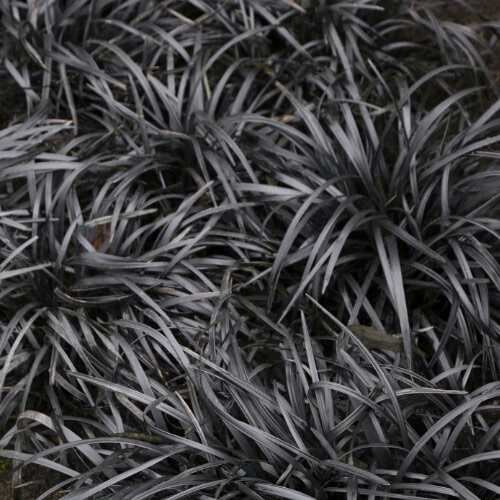Black mondo grass, monkey grass support microbiome gut health and antiobesity
Dec
17
Ophiopogon japonicus is better known as dwarf lilyturf, mondograss, fountainplant, and monkeygrass; or in Japanese: リュウノヒゲ ryu-no-hige ("dragon's beard") or ジャノヒゲ ja-no-hige ("snake's beard") (source: see Wikipedia).
In traditional Chinese medicine Ophiopogon japonicus' tuber root, is the key herb for yin deficiency. According to the "Chinese Herbal Medicine Materia Medica," the tuber part of the root of Ophiopogon japonicus enters the heart, lung, and stomach channels and nourishes the yin of the stomach, spleen, heart, and lungs and eases irritability. The herb is sweet, slightly bitter and slightly cold. The herb in Chinese medicine is known as mai men dong (Chinese: 麥門冬).
Now there is science to back up these claims, according to a February 2019 Chinese Pharmaceuticals University report. MDG-1, a water-soluble polysaccharide extracted from the root of Ophiopogon japonicus Ker Gawl has been reported to regulate body metabolism, including weight loss, antiobesity, and antidiabetes. Professor L. Shi demonstrated that, in HFD-induced obese mice that were treated with "MDG-1 at a high dose of 300 mg/kg for 12 weeks, the ratio of Firmicutes/Bacteroidetes (F/B) decreased to normal levels." In addition, it was found that in HFD-induced diabetic mice, MDG-1 decreased the number of pathogenic bacteria (Escherichia coli and Streptococcus) (Source: State Key Laboratory of Natural Medicines, Jiangsu Key Laboratory of Carcinogenesis and Intervention, Department of Basic Medicine, School of Basic Medicine and Clinical Pharmacy, China Pharmaceutical University, 24 Tongjiaxiang, Nanjing 210009, China).
See full report, https://www.hindawi.com/journals/ecam/2019/2682748/
Contact Qinglong Guo; qinglongguo@hotmail.com and Na Lu; nalu@cpu.edu.cn


